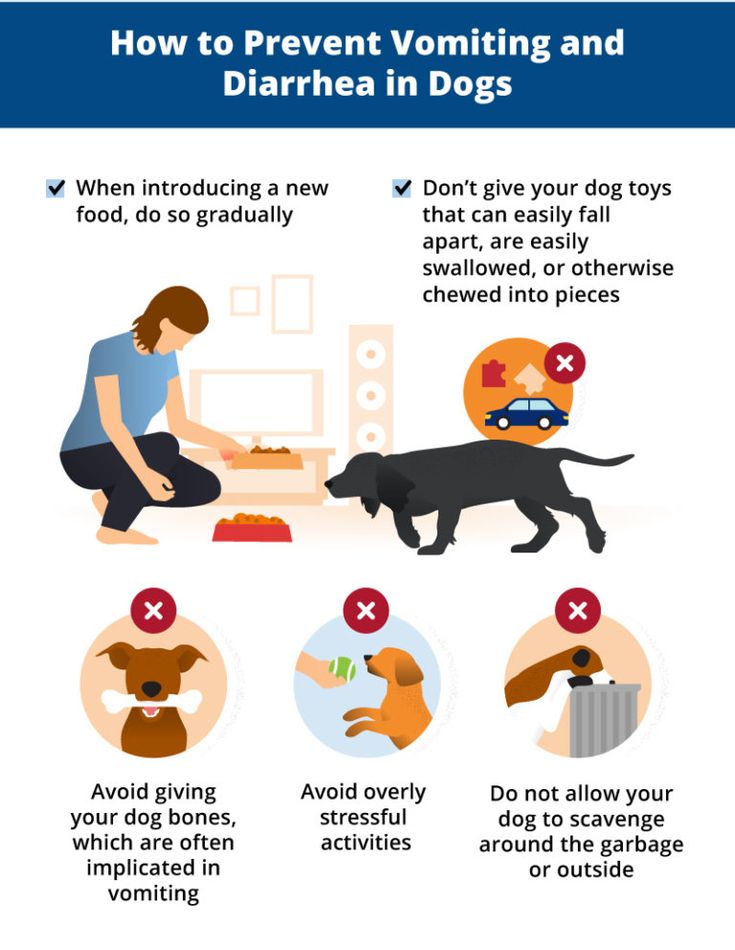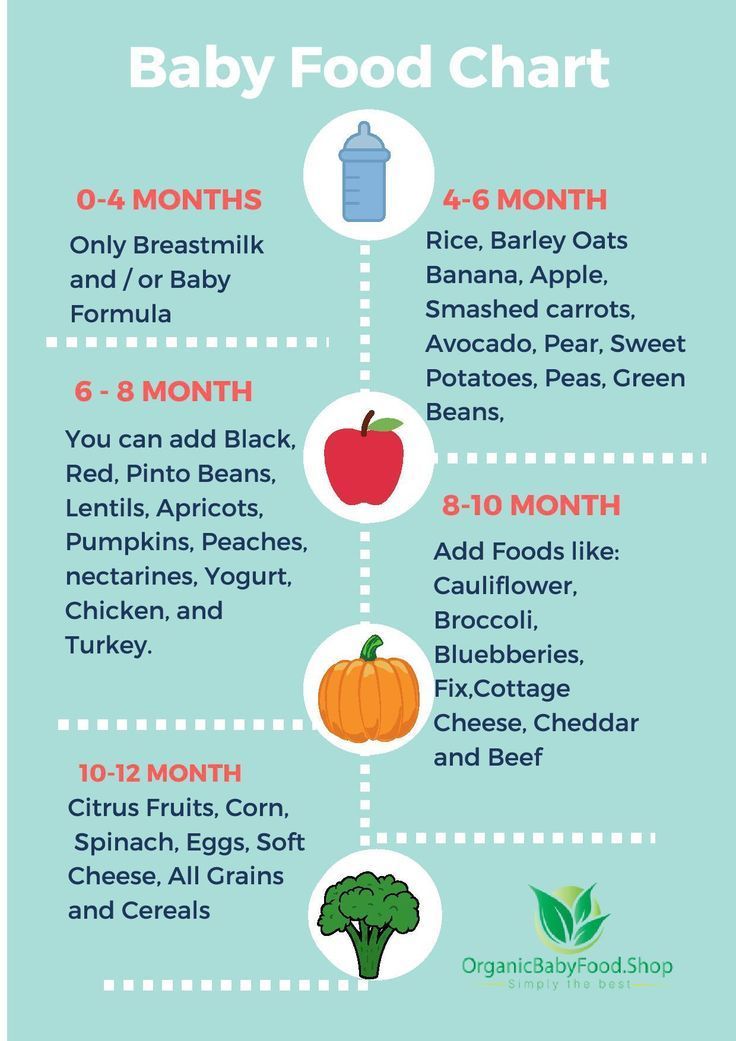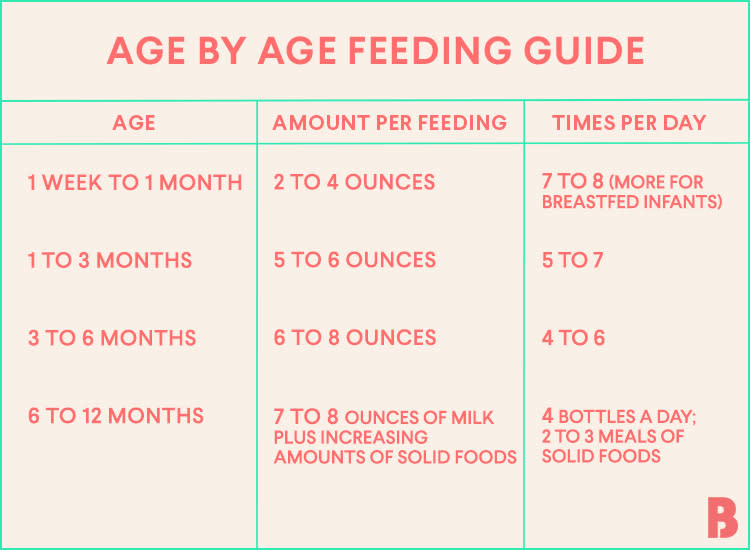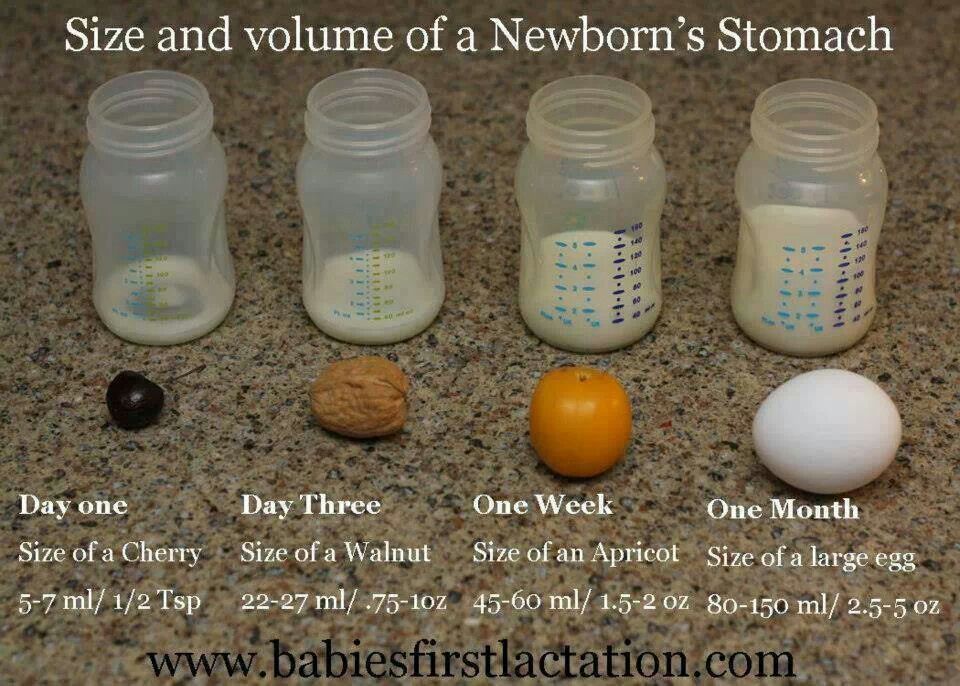Babies cluster feeding at night
Surviving Cluster Feeding and Those Long, Fussy Nights
by Jenny Silverstone
If you’re breastfeeding your baby, you may have been warned about cluster feeding by your other mom friends. It can be a difficult phase to get through and you may even question if you are making enough milk, but we’ve got your back with all the information you’ll need.
What is Cluster Feeding?Cluster feeding is a normal phase, especially for breastfed babies. While babies eat often — somewhere between 8 to 12 times in a single day — with cluster feedings, a lot of those feedings will be close together. It often happens in the evening — suddenly your baby will want to be at your breast endlessly. Cluster feeding is completely normal and usually occurs in your baby’s first six months. You’ll likely see it for the first time soon after your baby is born. It’s a hard time for moms. It’s tiring, and it prevents them from getting anything else done. Cluster feeding may last just a couple days or it can last for a few weeks. Only your baby will decide that — it will know when and for how long it needs more milk. Your little one is basically telling your body to increase your milk supply with the extra stimulation at breast to meet their growing body’s nutritional needs.
No one is really certain what causes cluster feeding. It could be caused by a variety of reasons. Perhaps a baby is having a growth spurt and needs more milk to fuel it. And since so many cluster feedings tend to occur at night, it can feel soothing to your baby to do when they are undergoing developmental stages.
How Cluster Feeding Can Help MomsBecause your baby is attached to your breast for sometimes hours at a stretch, cluster feeding doesn’t feel like a good thing for you, even though you may love the extra snuggles from your babies. But it’s so demanding, it can leave you feeling exhausted and overwhelmed. When that happens, you need to keep the positives of cluster feeding in your mind so you feel better about your situation.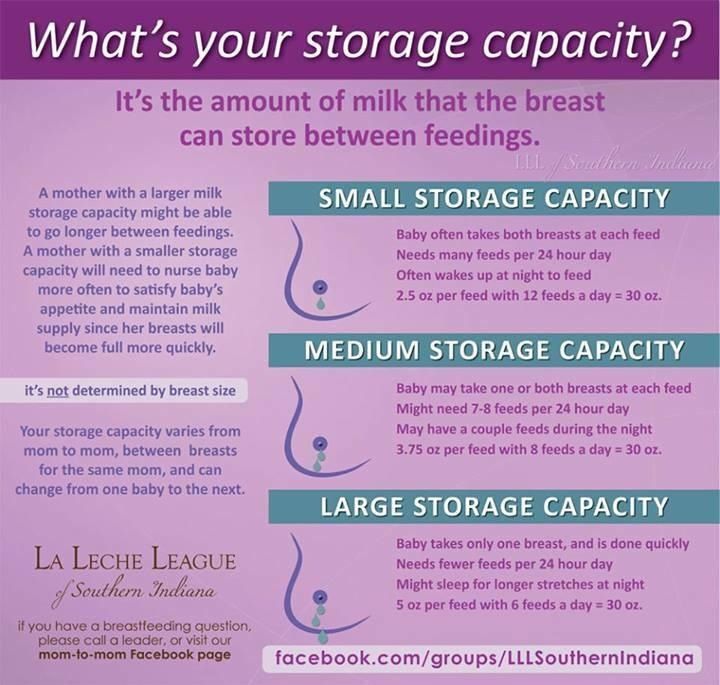 Looking on the bright side can really help, so here are a couple of big positives about cluster feeding.
Looking on the bright side can really help, so here are a couple of big positives about cluster feeding.
- It can increase your milk supply: Because your milk supply ramps up with frequent breastfeeding or pumping sessions, you’ll feel less worried about potentially running out of milk as your baby grows. You can use that extra milk to build up your freezer stash. It’s amazing how your body knows exactly what to do to meet your baby’s needs!
- Your baby might sleep longer stretches in the night: There’s an outside possibility that cluster feeding might make your child sleep longer at night, which means you could also sleep longer. While there’s no guarantee, it’s nice to have that to daydream about — a good night’s sleep.
Any way you slice it, cluster feeding is tough. Your baby will be so fussy, you’ll wonder what’s going on, and after a while, you’re going to be tired of being treated like an all-you-can-eat buffet. You may feel like you’re barely clinging to sanity, but there are some ways you can take the sting out of the experience.
You may feel like you’re barely clinging to sanity, but there are some ways you can take the sting out of the experience.
- Make a cluster feeding kit: You’re going to be tied up for hours during these cluster feeding sessions so you need to be prepared. Have a movie ready to watch, have snacks and water nearby, and grab a few magazines or a book to keep on hand.
- Enlist help: You’re the only one with the breast milk your baby needs, but that doesn’t mean others can’t help too. Your partner should also be in on this non-stop fun. If your baby takes a break in the breastfeeding action, even just for a few minutes, hand your little one off to your partner and give your body a much-needed break.
- Don’t skimp on the food and drinks: Aim for nutritious food and don’t forget to stay well-hydrated. Breastfeeding is a lot of work for your body and it needs all the nourishment it can get. Breastfeeding torches an estimated 500 calories a day normally, and you may burn more than that when your baby cluster feeds.

- Get enough sleep: Because of all the extra feedings, you’re going to be more tired than ever. Even if it’s the early evening hours and you have a million other things you’d rather be doing, lay down when your baby does and try to get some power naps in there.
- Let your baby dictate what it wants: You might be so tired of breastfeeding after a few days of cluster feeding that you’ll look for other ways to soothe your baby. Babies know what they want and what they need when it comes to how much milk they take in, so feed them as often as they need it.
- Give your arms a rest: Put your baby down whenever possible — in a baby swing, a crib, or a pack ‘n play. Babies may be light, but they feel super heavy on the arms after a while. You could potentially be holding your baby for hours, so you need to pencil in a break for your arms whenever you can.
- Let the chores go: Your house may look like a disaster zone during cluster feeding episodes, and you’ll have to be okay with that.
 You can ask your partner to pitch in more during this time. If that’s not possible, just let it go and do your best to catch up with it when things are back to normal.
You can ask your partner to pitch in more during this time. If that’s not possible, just let it go and do your best to catch up with it when things are back to normal. - Don’t turn on the lights at night: If your baby gets up frequently in the night during cluster feeding episodes, make it your goal to get your baby back to sleep as soon as possible. Keep those lights off, don’t make any loud noises, and change their diaper before the feeding begins so they can be put in their crib as soon as they get their nourishment.
Even if you sail through the exhaustion and all the sitting you’re going to have to do, you still might have other issues with cluster feeding. Your mind might be strong, but your nipples could be feeling like they have been dipped in lava. What’s a girl to do when her nipples are cracked and possibly bleeding but her baby is screaming for more? First of all, ensure that you have the baby latched properly at breast to prevent nipple trauma.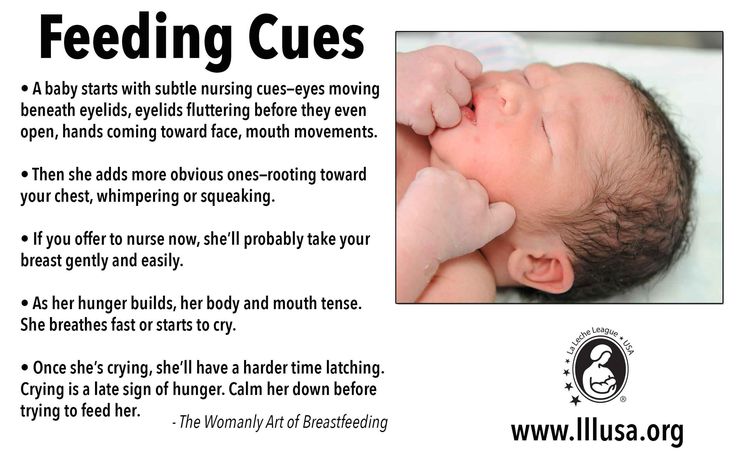 It’s not about having baby on like a “bullseye”; it’s more about the proper latch. If you are concerned baby is only getting the nipple when latching, reach out to a Lactation Consultant for help.
It’s not about having baby on like a “bullseye”; it’s more about the proper latch. If you are concerned baby is only getting the nipple when latching, reach out to a Lactation Consultant for help.
Outside of proper latch and positioning, here are some solutions when you feel like your nipples have gone around with sandpaper.
- Put nipple cream to work: Nipple cream can be soothing. You can either use coconut oil, creams available in stores, or you can even try rubbing a few drops of breast milk over your nipples when feeding time is done. If you use a cream, make sure to wash it off your nipples before feeding your baby again if that’s required on the instructions.
- Skip the tight bras: While your nipples are sore, you should avoid tight bras or ones that are made of scratchy material. That will just make you feel even worse.
- Use warm moisture: Keeping your nipples hydrated will help and using warm, not hot, water will feel soothing and keep them from drying out.
 You can put a damp and warm towel over your nipples for a few minutes and see if that helps.
You can put a damp and warm towel over your nipples for a few minutes and see if that helps. - Ditch the shirt: If you don’t have any older children living with you and you have shades or blinds up over your windows to block you from any nosy neighbors, you can go shirtless too. That will stop any unnecessary chafing.
- Use different positions while breastfeeding: Changing the angle slightly during each session may protect your nipples a bit.
When your baby deviates from their established routine or what is normal for them, of course, you’re going to be worried. You’ll wonder if something is wrong with your baby or if you’re doing something incorrectly to cause them to act that way. To make yourself feel better and cover your bases, make sure your baby is still frequently having wet and dirty (stool) diapers in case you are suddenly having problems with your supply. You should see at least five very wet diapers a day from your baby — if you don’t see this many, call your doctor. It may also be a good idea to call your doctor or Lactation Consultant if your baby’s cluster feeding has gone on for more than a few days. While it can be normal for it to last longer than that, you’ll probably be really worried by this point and a quick doctor’s visit would be worth it to ease your mind.
It may also be a good idea to call your doctor or Lactation Consultant if your baby’s cluster feeding has gone on for more than a few days. While it can be normal for it to last longer than that, you’ll probably be really worried by this point and a quick doctor’s visit would be worth it to ease your mind.
Cluster feedings are just a minor speed bump during all the years you’ll have as a parent, so it’s helpful to keep it in perspective when you’re in the midst of it and it feels insurmountable. You’ll be through this challenge in just a few days and you’ll feel more confident that you can get through anything.
About the AuthorJenny Silverstone is the mother of two, and breastfeeding advocate and an editor and writer for the popular parenting blog Mom Loves Best. Jenny’s loves helping inspire and educate other mothers on all topics related to breastfeeding, pumping breastmilk, and dealing with low milk supply.
Why Babies Do It and How to Manage It – Dreamland Baby
Skip to content☁️ FREE SHIPPING ON U.S ORDERS ☁️
Now reading: Cluster Feeding at Night: Why Babies Do It and How to Manage It
PrevNextIf you have a new baby who spends the entire evening or night attached to your breasts, never seeming satisfied no matter how many times you feed them, you’re probably wondering what’s going on. It's likely your baby is going through a period of cluster feeding...and it’s completely normal.
Cluster feeding is most common in younger babies and often presents itself in the evening and night hours. Here we’ll discuss more about what cluster feeding is, why your young infant requires so many feeds during a short time, and how to manage this exhausting time period with your hungry, little babe.
Cluster feeding is when your breastfed baby nurses several times during a short window of time. With these back-to-back nursing sessions, it can feel like your baby is feeding non-stop. Formula-fed babies can cluster feed, too, but it is more common in breastfed babies.
There isn’t one reason that babies cluster feed, but it often signals the mother’s body to make more milk. If a baby isn’t getting as much breast milk as they need to get full, they will continue to nurse until they are able to get the nutrition that they need.
Growth spurts, as we write about here, are a time when a baby may be more apt to cluster feed. Typical ages during the infant stage that you may see these occur are 2-3 weeks, 6 weeks and 3-4 months. Older babies don’t generally cluster feed even when they are going through a growth spurt.
Are you looking for a better swaddle for your baby? Check out our weighted sleep swaddle as seen on Shark Tank.
Cluster feeding can happen at any time, but it’s much more common in the evening and through the night. Probably not what you want to hear, right?! You can have a perfect day with your baby, where everything is following the “schedule” to a T, and all of a sudden 5 o’clock hits and your baby wants nothing else but to nurse.
Though it’s likely that your baby is cluster feeding due to a growth spurt or just requiring more milk from you to get full, it’s not always about nutrition. Babies also can be really tired in the evenings and nursing gives them comfort.
Though this isn’t true for all pairings, a baby may need to nurse from her mom more in the evening because she isn’t getting a full feeding from one session like she does at other times of days when the breasts are fuller. According to Lactiful, “A mother’s body typically produces more milk in the morning, and less as the day goes on. This is normal. Therefore, as evening nears it’s normal for baby to ask for more frequent feedings.”
Therefore, as evening nears it’s normal for baby to ask for more frequent feedings.”
Your baby’s need to cluster feed shouldn’t be a sign that you have a low milk supply. Instead nurse them as they need, and your body should respond by producing more milk over the course of the next several days.
Benefits of Nightly Cluster FeedingWhen you just fed your baby 30 minutes ago and they seem to be asking for the breast again, you may mistakenly think that hunger isn’t the issue. If your baby is upset and nursing calms them, then that’s your sign that they need to feed again. We know these back-to-back nursing sessions can be exhausting, but it’s important that you let them happen.
(If your baby still cries when you offer the breast, you may have a situation where your baby has colic. We recommend reading, “Helping a Baby With Colic: Identifying Symptoms and 10 Soothing Tips.”)
Encouraging cluster feeding when they need it will ensure your baby has enough milk. It will also allow your body to start producing the milk required to keep up with your baby’s nutritional needs going forward. Cluster feeding is temporary, so managing it in a way that keeps you both as relaxed through it as possible, the better.
It will also allow your body to start producing the milk required to keep up with your baby’s nutritional needs going forward. Cluster feeding is temporary, so managing it in a way that keeps you both as relaxed through it as possible, the better.
Cluster feeding can run you ragged if you let it. And if you’re feeling overwhelmed by it, you’re not alone.
When you’re stuck in the phase where your baby is constantly latched to you it’s difficult to imagine a life beyond that where you have your body and more time back. But it is temporary - usually only lasting on and off for a month or two. In the meantime, the best thing you can do is accept that your baby will need to cluster feed and then focus on managing it in a way that allows you to stay relaxed through it as much as you can.
We’re not going to sit here and tell you to enjoy every moment, but we will tell you that setting realistic expectations for this time will set it up to be a much more positive experience.
1.) Expect It and Plan Ahead
Crossing your fingers and hoping this is the night that your baby decides to stop cluster feeding is only going to serve to let you down. It’s much better to go into your day expecting your baby to cluster feed as they have been and this will help you prepare for when that hour comes.
It’s much better to set realistic expectations for the situation so you don’t end up overwhelmed and frustrated. That way, instead of eyeing the clock and anxiously holding your breath, you can instead plan that time according to your baby’s needs. For example, if you know that your baby typically cluster feeds between 6 and 8, plan to set up shop on the couch during that time. Reframe this time as when you’re not able to get anything accomplished to a time you can just relax and provide comfort to your baby.
2.) Vary Your Breastfeeding Positions
Because your baby latches on so many times during a cluster feed, your nipples can take a beating.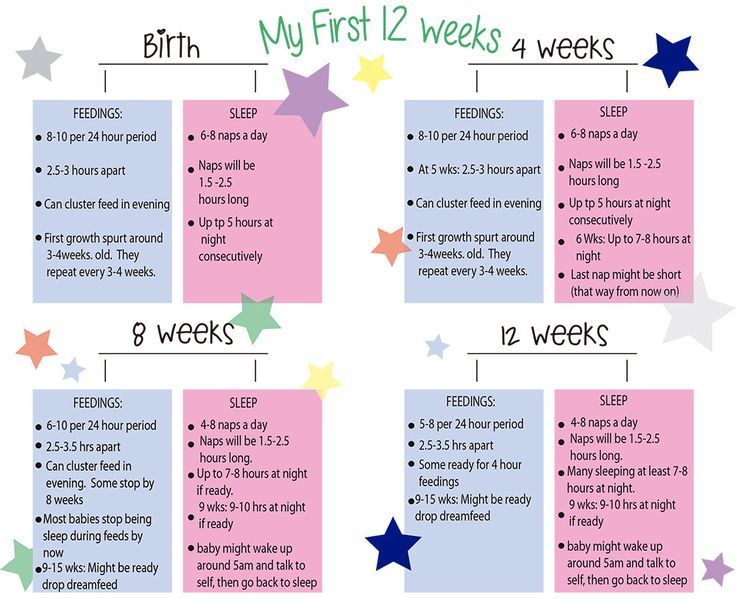 Not only do you want to be taking care of your breasts by using lanolin and nursing pads, but changing up the position you feed your baby in can help, too.
Not only do you want to be taking care of your breasts by using lanolin and nursing pads, but changing up the position you feed your baby in can help, too.
Changing nursing positions switches up the angle that your baby is taking your breast, meaning there’s less likelihood of a lot of irritation building in one spot. If you do find the pain to be unbearable, however, it’s important to reach out to a lactation consultant.
Side-lying breastfeeding is a great option. This allows you to lay in your bed to nurse, helping you to relax during these times when your baby won’t let you do anything else but nurse them.
3.) Keep Up with Baby's Bedtime Routine
The last thing we want is for you to feel guilty if you miss any steps of your bedtime routine. But it is important to do as much as you can between your baby’s feeds. This will continue to signal to your baby that nighttime is for sleeping, ensuring that when your baby’s cluster feeding period is over they’ll move right back into their old routine.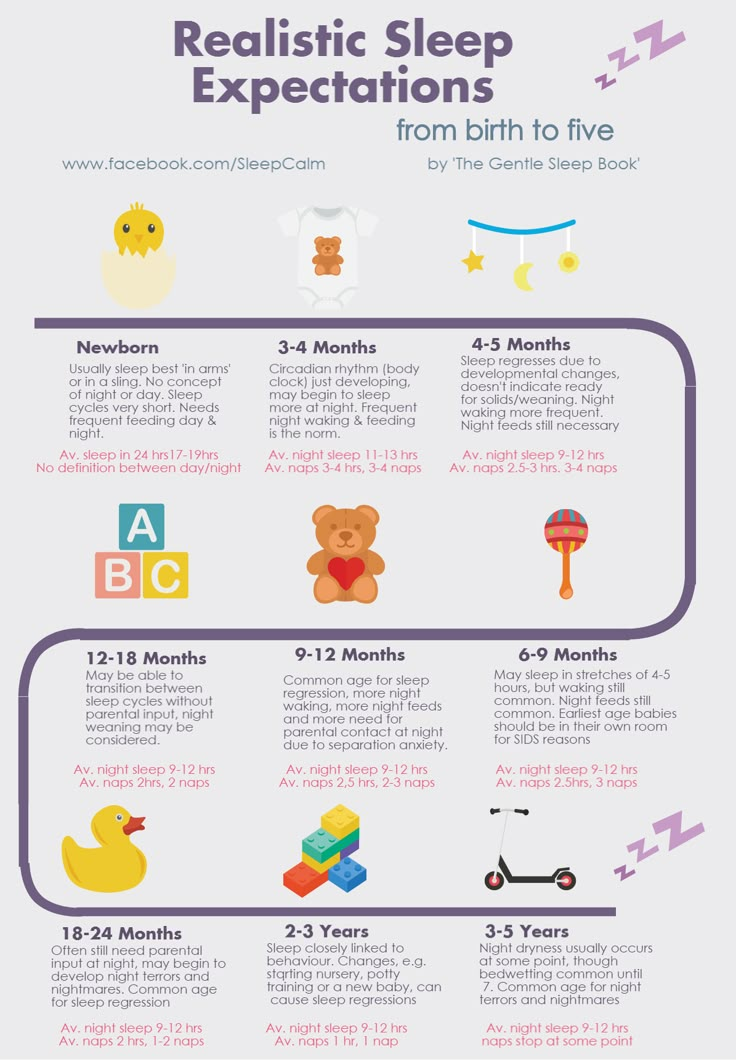
On top of that, your baby has come to expect their bedtime routine and it’s calming for them. Sticking with your baby’s bedtime routine is a great way to get them relaxed and ready for bed as you give them those last feeds of the day...which can extend the time before they’ll wake up to feed again.
To calm your baby at night we recommend:
- Swaddling in a Dreamland Baby Weighted Swaddle (or a Weighted Sack if your baby is already rolling over) - the all-over quilted weight of this unique sleep sack will induce feelings of calm for a baby as they top off their milk for the night and prepare for sleep
- Turning out the lights - the stimulation of light may keep your baby up and feeding, which is why we recommend doing later evening cluster feeds in your baby’s dark room
- Singing or using white noise - Utilizing music is a great way to calm your baby as we discuss in this article
Use a Dreamland Baby Weighted Swaddle or Sack to calm your baby during cluster feeds so they'll fall asleep faster and stay asleep longer.
4.) Try Baby Wearing
Your baby’s need to cluster feed isn’t always about getting more calories. Sometimes they just want to be close to you or have become overstimulated from the day. (It may even be that they need to be laid down for a catnap.)
If you’ve attempted cluster feeding but your baby still seems unhappy, you may want to try wearing your baby through the evening hours. If you utilize a carrier that positions your baby in a way that they can still breastfeed (the Baby K’Tan is great for this), this allows them to cluster feed at their leisure or pull off when they’re no longer hungry. Wearing your baby can get you through some tough evenings - it keeps your baby happy and you’re able to accomplish what you need to get done.
5.) Prep Dinner in the Morning
Your baby may be one of the many who insists on being at the breast starting in the early evening all the way until bedtime. This can make getting dinner ready difficult if that task falls on you.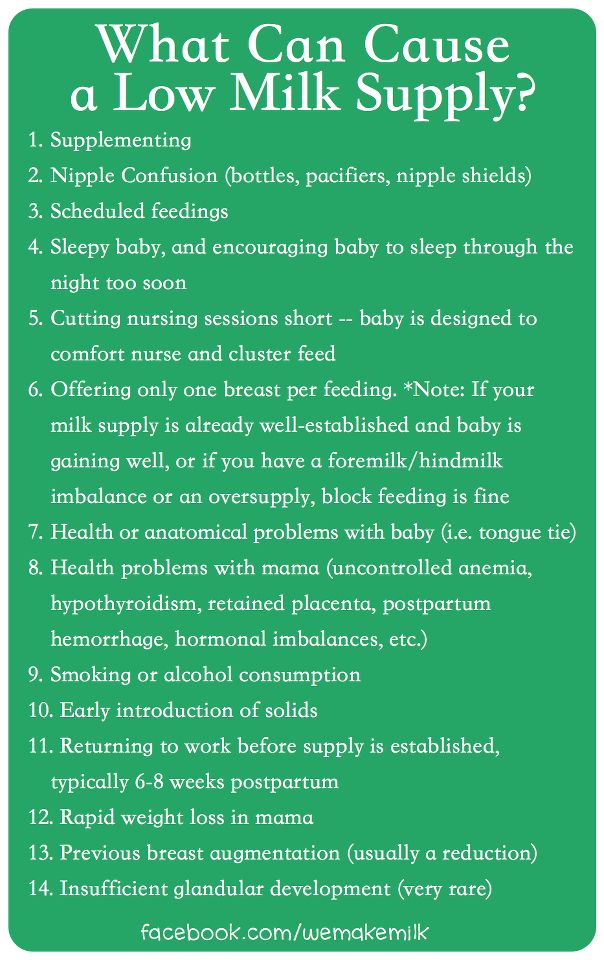 One of the best things you can do for yourself is to have dinner ready ahead of time.
One of the best things you can do for yourself is to have dinner ready ahead of time.
Making Crock-pot meals in the morning that are ready to spoon out will make this time of day much less stressful - especially if you have other little mouths in the house to feed. At the very least, having everything chopped and ready to go will cut down your dinner making time, meaning you’ll have more time to be with your baby. This will help ensure you get fed, too - because if you’re not taking care of you first, it’s very hard to give the best care you can to your little one.
6.) Utilize a Dream Feed
If you have a baby who is frequently waking up at night to feed, utilizing cluster feeding sessions in the evening alongside a dream feed before you head to bed is a great way to help your baby sleep longer stretches at night.
Essentially, you'll feed your baby one last time right before you go to bed. This will likely mean getting them out of their crib and getting them to stir just enough that they'll take a full feed.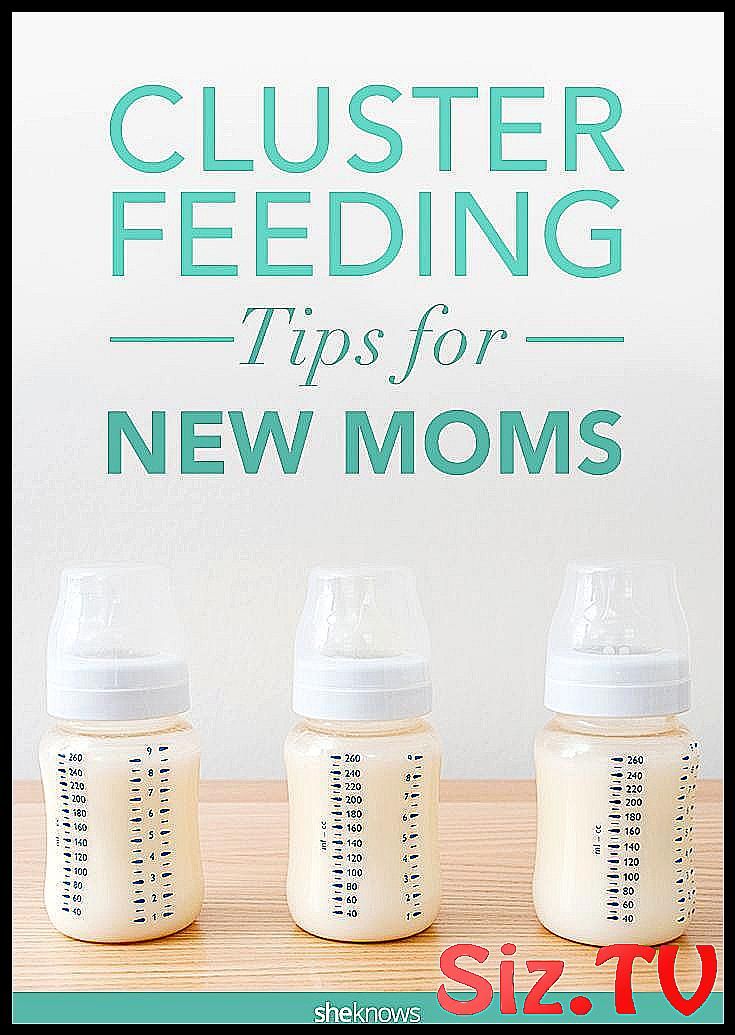 That's the gist, but we have an entire post about how to dream feed here.
That's the gist, but we have an entire post about how to dream feed here.
A dream feed will help top your baby off one last time before bed and will reduce the number of times they'll need to feed in the middle of the night.
7.) Take a Break
Even for the most flexible, easygoing moms, cluster feeding can be a lot. It's exhausting feeling like you're doing everything you can to satisfy your baby and they're still hungry. Remind yourself that it's temporary helps, but in the moment it feels like it will never end.
It's important that you give yourself a break, even if it's short. Pass your little one off to your partner and take a bath or go for a walk. You'll want to avoid giving a bottle simply because in order for your milk supply to increase as your baby requires, you'll need that breast stimulation from the cluster feeds. But try to utilize any spare time between feeds to let chores go and give yourself a little "me time" or take a little nap. This will go along way with staying positive even when your baby needs to feed multiple times in the evening or overnight.
How long does cluster feeding last?
Cluster feeding is normal behavior for newborns and typically happens during growth spurts. So while your baby used to feel satisfied in a more predictable pattern (around every 2-3 hours throughout the day), expect more back to back feedings at around 3 weeks old, 6 weeks old, 3 months and 6 months. Keep in mind that every baby is different, so these dates are not one size fits all. But as growth spurts occur, it means that their little brains and bodies are developing, and that extra feeding helps.
In terms of how long a cluster feed might last, well… you may start to feel like a feeding machine. It could be as much as every half hour and/or for longer periods of time, more frequently. But the more your baby eats, the more your milk supply will increase and eventually, things will feel more “normal” again.
What ages do babies cluster feed?
Babies usually cluster feed when they are experiencing a growth spurt. While every baby is different and reaches milestones in their own time, it’s likely that growth spurts happen at around 3 weeks, 6 weeks, 3 months, and 6 months. Growth spurts really can happen at any time and will usually last a few days each time.
While every baby is different and reaches milestones in their own time, it’s likely that growth spurts happen at around 3 weeks, 6 weeks, 3 months, and 6 months. Growth spurts really can happen at any time and will usually last a few days each time.
How often do newborns cluster feed?
In those early days and weeks of parenting, it may seem like all you’re doing with your newborn is watching her sleep, poop, and eat… and that may actually be the case. A newborn eats at least every 2 hours or so, and spends a good 10-15 on each breast. This averages out to around 20-30 minutes per meal (this includes if you’re bottle feeding). So while not necessarily considered a cluster feed, your newborn will eat a LOT in the beginning as they grow, develop, and get used to life outside of the womb.
Why do babies cluster feed at night?
Some babies cluster feed at night not because they’re hungry, but because it’s comforting. Since feeding is also frequently a part of the nighttime routine, the combination of skin-on-skin contact, eating, and snuggling can be soothing to them which can help them fall asleep for a longer period of time.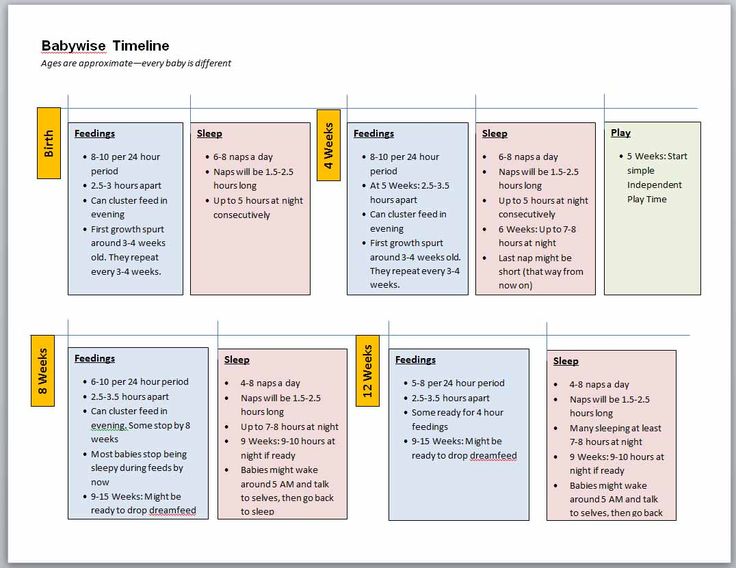
Some parents feel that their milk isn’t coming in during evening hours as much as it did during the day, so babies may take longer to nurse. Don’t let this worry you! The more you nurse, the more your milk supply will increase so baby will get the extra milk they need.
Do babies sleep longer after cluster feeding?
Some babies may sleep longer after cluster feeding because they’re going through a growth spurt. This can feel exhausting – to both mom and baby! So a little extra zzz’s due to cluster feeding is a good thing.
When do you stop cluster feeding?
By the time your little one reaches the 6-month mark, chances are they’re done with cluster feeding. Remember, every baby is different and develops at their own pace, so don’t worry if she wants to keep cluster feeding for a few more weeks. Of course, if you’re concerned at all about how much, how little or how frequent she’s eating, please discuss with your pediatrician.
How do you break cluster feeding?
It’s important to remember that there’s a reason your baby is cluster feeding in the first place.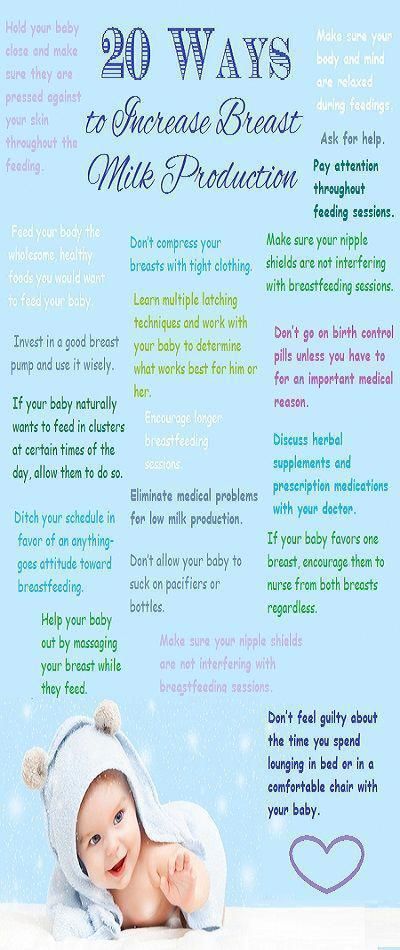 It’s because the growth spurt they’re experiencing requires more food to help baby develop and grow. This can be stressful as you may start to feel like a feeding machine. Remember to give yourself a break, rely on your partner or friends/family for support, and practice self-care when you can. Cluster feeding typically doesn’t last past 6-months as older babies don’t generally cluster feed when they are going through a growth spurt.
It’s because the growth spurt they’re experiencing requires more food to help baby develop and grow. This can be stressful as you may start to feel like a feeding machine. Remember to give yourself a break, rely on your partner or friends/family for support, and practice self-care when you can. Cluster feeding typically doesn’t last past 6-months as older babies don’t generally cluster feed when they are going through a growth spurt.
- Weighted Sleep Sack Safety and How It Will Help Your Baby Sleep
- How To Stop Startle & Moro Reflex Without Swaddling
- The Best Wearable Blankets
- How to Get Your Baby to Sleep Without Nursing
- Best Swaddle for Newborns
- Signs It’s Time to Stop Swaddling Your Baby
- Are Sleep Sacks Safe for Babies Who Can Roll Over?
- How to Get an Overtired Baby to Sleep
- How to Wash & Clean Your Dreamland Baby Sleep Sack
- How to Stop the 45-Minute Intruder During Your Baby's Naps
- How To Swaddle Your Dreamland Baby
- Baby Napping Close to Bedtime and How to Do It Right
- Know the Facts: What's Safe and What's Not for Baby's Tummy Sleep
- How Should A Sleep Sack Fit?
16 of the Best Christmas Gifts for New Parents
6 Reasons Why Your Baby May Be Sleeping More and Eating Less
Breastfeeding and child's night sleep
09/26/2014
24
Any mother has the right to choose how and what to feed her baby.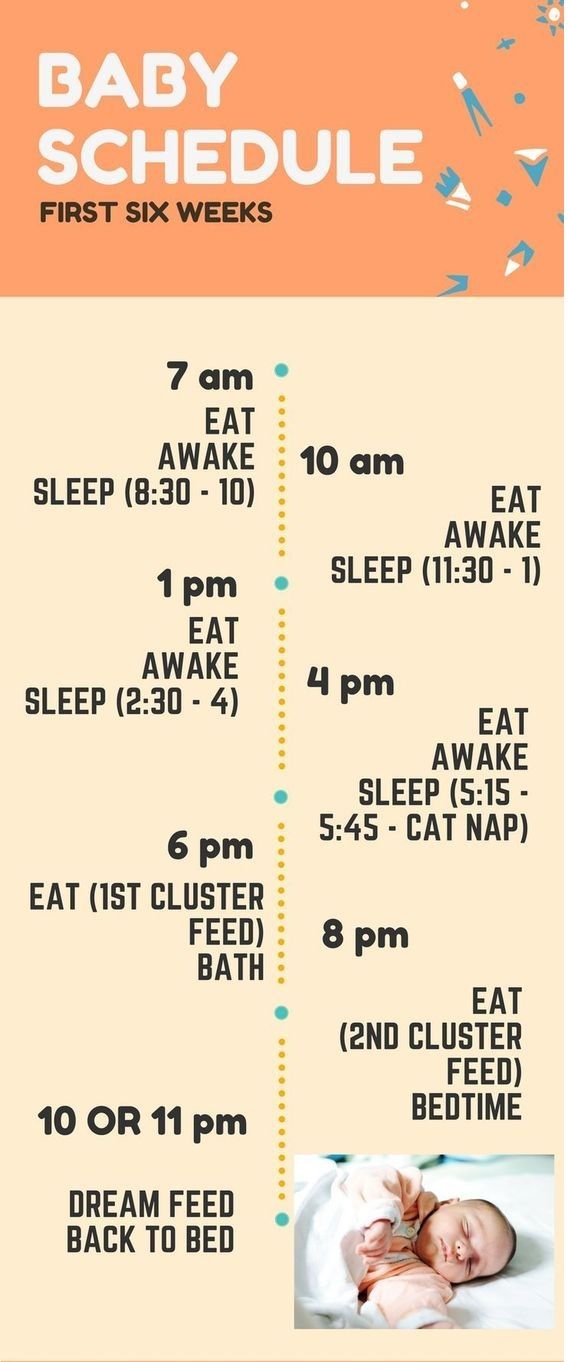 Moreover, for some mothers, unfortunately, there is no choice. Breastfeeding for a mother can also become tender moments alone with the baby and tormenting flour.
Moreover, for some mothers, unfortunately, there is no choice. Breastfeeding for a mother can also become tender moments alone with the baby and tormenting flour.
Many mothers feel uncomfortable with the feeling of complete attachment to the house and the baby; restrictions in the usual way of life and nutrition, and sometimes the inability to exclude medications, can become a serious factor when choosing artificial feeding. nine0003
This is a choice every mother is entitled to.
But sometimes a nursing mother whose child does not sleep well hears the opinion of her friends, pediatricians (which is especially sad), grandmothers that this is all because the baby is breastfed. The words that endless nocturnal rises are the essence of motherhood, and since I feed myself - all the more, for a long time kept me in the state of an eternally sleepy and tired heroine. Are really breastfeeding mothers doomed to the feat of endless nightly feedings until the moment of weaning? For me, the end came when one night my son woke up 8 times, after which in the morning I no longer remembered how many more times I got up to “feed” him.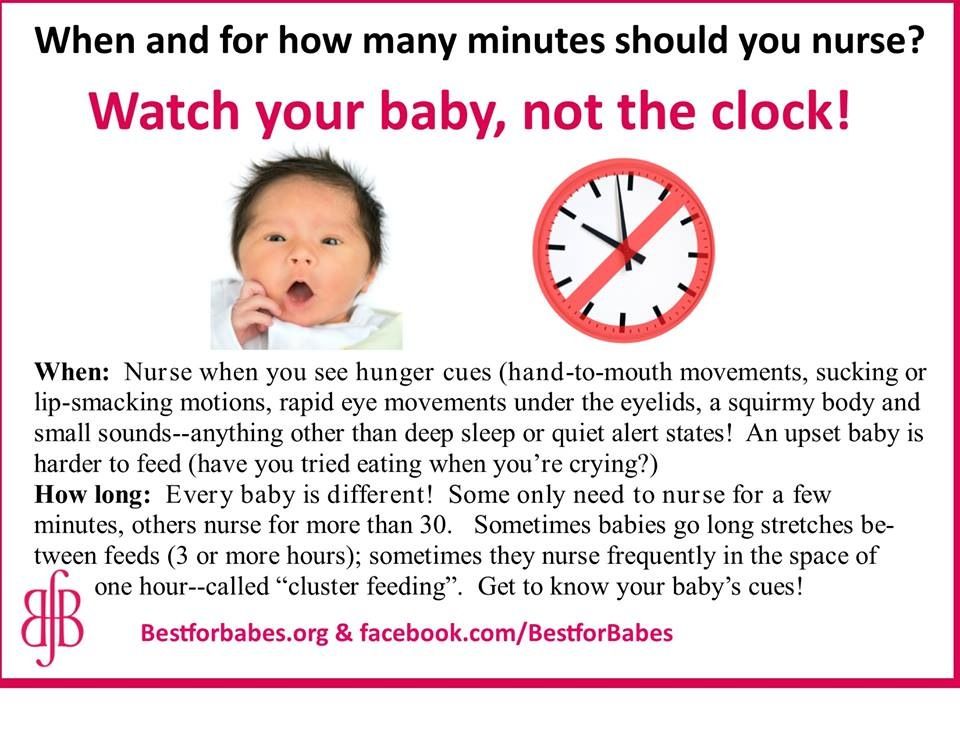 nine0003
nine0003
In fact, formula-fed babies often sleep no better or worse than breastfed babies.
The point is that the amount or type of food is not always the reason for nighttime (all the more frequent) awakenings of a child older than 3-4 months. Yes, breast milk is absorbed faster by the digestive system; Yes, formula-fed babies may sleep for longer periods due to slower digestion of formula, and therefore a longer satiety period. However, the main cause of sleepless nights is still the lack of infancy (and sometimes early preschool) skills to fall asleep on their own. So the kids are looking for support and help from their mother (who else?) in the form of a call “feed me”, “hold me on the handles”, “shake”, “stay my nipple”, etc. And mom happily goes to the rescue, until one day she stops, realizing with horror that all she thinks about now is an uninterrupted sleep of 2 (put your number) hours. nine0003
I never tire of repeating that all children are different, but there are indicative frameworks that will help a mother decide whether her baby's hunger is real or whether he still needs her support.
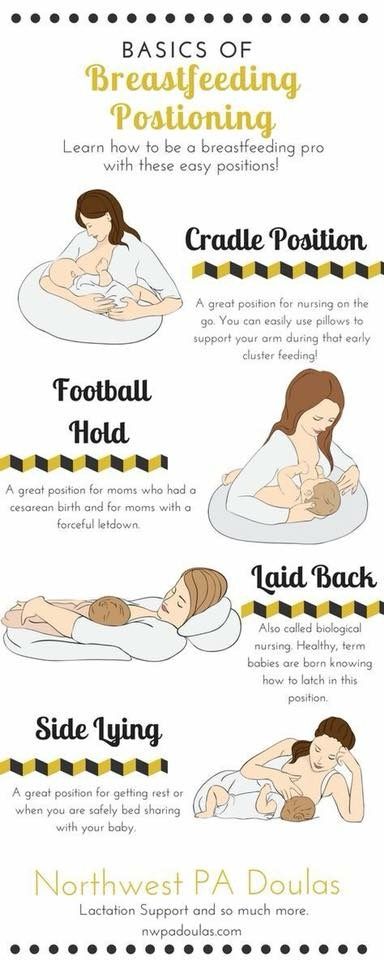
- Newborn babies need to eat every 2-3 hours whether it is day or night. During this period, frequent attachments are also important for a young mother, because. her lactation is still in its infancy;
- Babies aged 3-4 months will need about 2-3 feedings (sometimes 4) per 12 hours of sleep a night. Remember, the structure of infant sleep will only change around 4 months; nine0032
- Babies 5-7 months need 1-2 feedings per night;
- Closer to a year, at the age of 10-12 months, most children, regardless of the type of feeding, sleep through the night. Don't forget that there are adults who can't go 12 hours without going to the kitchen, so be patient if your little one still wakes up to eat once. However, you must be absolutely sure that he knows how to fall asleep on his own, really eats during such awakenings (swallowing should be clearly audible). nine0032
At about one year of age, if you are still breastfeeding, you may want to consider weaning from night feeds.

There are other factors that increase the baby's need to attach to the mother's breast, which are important to remember. At the age of 4-5 months, the child already knows a lot: turn his head and follow objects, focus his eyes on objects at different distances, sometimes roll over, distinguish voices and sounds - the world around him becomes more and more interesting for him. This means that he can not miss anything, and sometimes even the time for feeding seems to be wasted. nine0003
The baby is distracted by every little thing during the day, the mother can hardly “force” him to eat. As a result, at night, when this amazing world calms down and muffles its colors, the child is forced to compensate for everything that was not eaten during the day. A good solution in this case would be to organize daytime feeding in a quiet environment, a darkened room. Some mothers are helped by slingobuses, which distract the baby, but do not require turning their heads, others hide in the pantry for feeding - all methods are good here. nine0003
nine0003
Teething, colds, colic and other ailments will also increase the number of night feedings. When we do not feel well, we want warmth and care, and a mother’s breast for a child is the embodiment of these concepts. There is nothing left here but to alleviate the suffering of the baby, including through frequent attachments. If you are sure that the cause of colic is unwell, try to feed the baby for as long as possible with one breast - this way he will receive nutritious “hind milk” and will not overeat the “front milk”, which can also provoke bloating. Luckily, these times pass quickly. nine0003
Working or studying mothers may not be able to spend enough time with their baby during the day, and he will ask for compensation at night. Therefore, it is very important to give the child maximum warmth and care during those daytime hours when you are around. Carry it in your arms, talk to it, touch it. Skin-to-skin contact will give the baby a sense of security, confidence that mom is there, even if she sometimes goes to work during the day.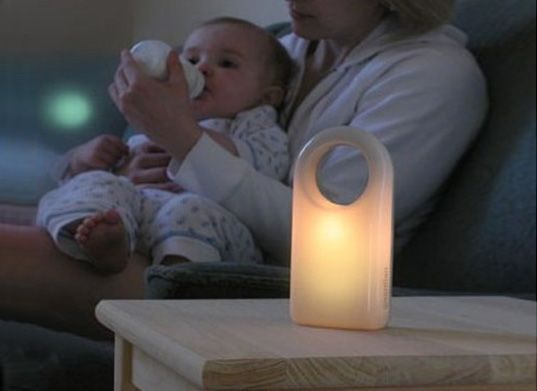 However, such mothers sometimes find night feedings a wonderful time to be just the two of them, because mothers need this time no less. nine0003
However, such mothers sometimes find night feedings a wonderful time to be just the two of them, because mothers need this time no less. nine0003
Stressful situations will also provoke most babies to look for their mother and demand a breast. The arrival of relatives to visit, quarrels of parents, going to a party with a child, moving to your own bed or even a room, participating in a costume party (have you been looking at the face of a clown or Santa Claus for a long time?) are not such fun events for a fragile psyche, but a mother’s warmth is the best guarantor of safety. Try to avoid such events while the child is very young, and if this is not possible, do not refuse the child additional application. Another way to help him feel secure is to offer a hug toy. Such a toy should be with the baby in the warmest moments of his life (feeding, fun games with parents) at first, then, having it nearby, it will be easier for him to survive short periods of new situations. nine0003
How to teach a baby to fall asleep without a breast
If you have eliminated all the above reasons, and your baby still wakes up more often than necessary for adequate nutrition for age - what is the reason? Often in such situations, the formed negative association between breasts and sleep is to blame.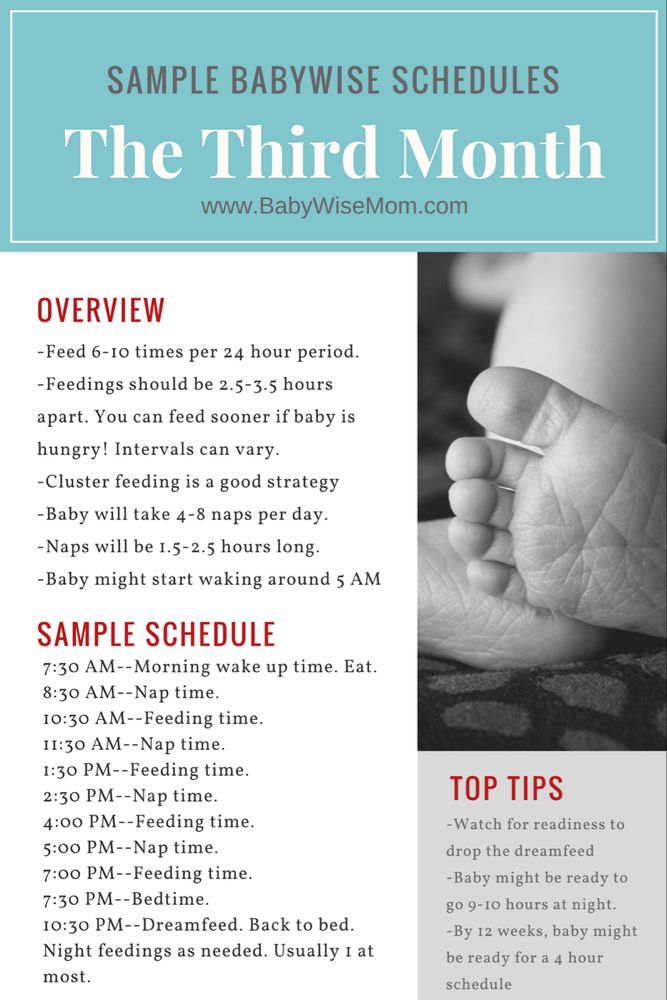 In other words, the baby simply does not know any other way to relax and fall asleep, except for the rhythmic sucking on the mother's chest. But, as I often write in my plans, he does not know - does not mean that he cannot learn! Who would have known that falling asleep is a skill that needs to be taught? But, think about it, you taught your baby to properly grasp the chest, roll over, sit, chew, drink from a spoon - why not fall asleep? So, how to put a baby to bed without a breast - a guide to survival:
In other words, the baby simply does not know any other way to relax and fall asleep, except for the rhythmic sucking on the mother's chest. But, as I often write in my plans, he does not know - does not mean that he cannot learn! Who would have known that falling asleep is a skill that needs to be taught? But, think about it, you taught your baby to properly grasp the chest, roll over, sit, chew, drink from a spoon - why not fall asleep? So, how to put a baby to bed without a breast - a guide to survival:
The first step in dealing with frequent nighttime awakenings for breastfed babies should be to separate feedings and sleep.
In order to show your baby that there are other ways to relax, it is important to let him explore these ways and try to find his own. And for this he must be awake after feeding!
So, if your baby is older than 5 months, feed after sleep, not before it. Move all feedings out of the sleeping area - ideally to another room, and definitely don't feed lying on the bed where you both have a good chance of falling asleep.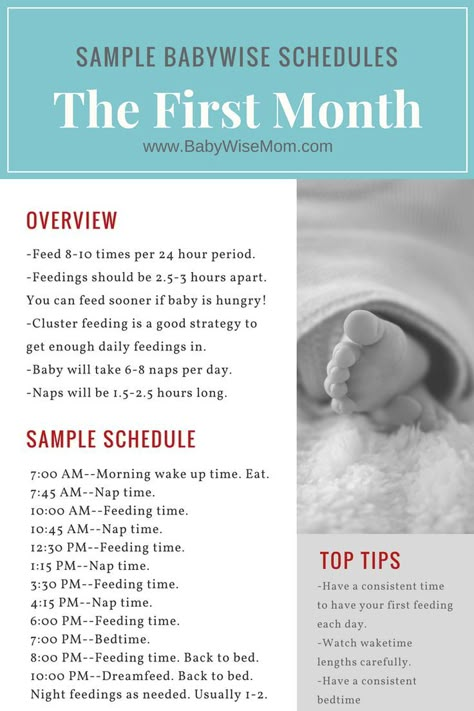 It is difficult, especially at night, but your perseverance in just a few days will bear fruit. nine0003
It is difficult, especially at night, but your perseverance in just a few days will bear fruit. nine0003
A sleepy and relaxed baby should be given the opportunity to try his hand at falling asleep - give him the opportunity to roll in the crib, sing songs, even whimper - do not rush to "rescue" him in the first second of anxiety. Understand that any change in routine will be met with protest, but if you have a goal, it's worth pursuing. Your throwing will only further confuse the child. At the same time, feel free to help him in other ways - shake him a little, sing, hiss or pat him. It is important that gradually, over the course of days (and sometimes weeks), you reduce your "help", giving him more and more space to fall asleep on his own. Ideally, your assistance should stop before the child is completely asleep - he should make this wonderful transition from wakefulness to sleep. nine0003
Be sure to put your baby to sleep where he wakes up at night. A sudden change of scenery, when he fell asleep on your bed, and woke up on the other side of the room in his crib, can scare and upset the kids, and you don’t need it at all.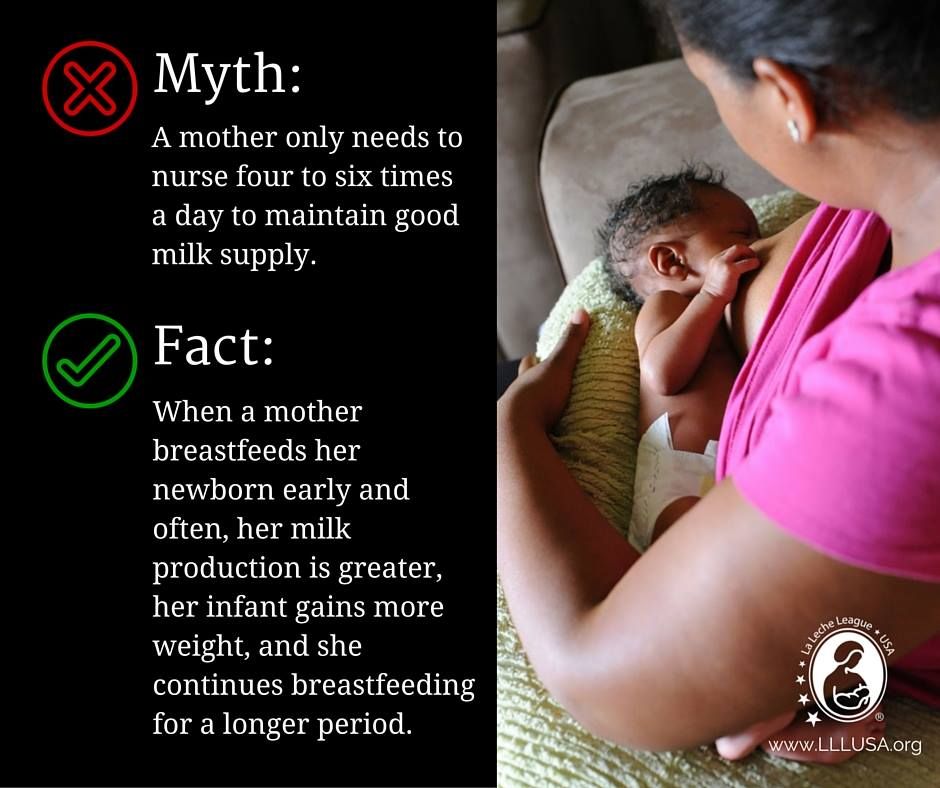
Whatever the reasons for frequent nighttime awakenings and consequent feedings, try to understand them. As you know, knowing the enemy in person is half the battle against him. Be realistic about your expectations for how long your child sleeps for their age. The stories of girlfriends, neighbors and grandmothers are not always absolutely true (well, have you never embellished the achievements of your very, very child?). Know that you can always count on help and be sure that sooner or later your baby will still learn to sleep through the night. Sweet Dreams! nine0003
Like this article? Rate:
Votes: 163
until what age to breastfeed at night
Breast milk is the perfect food for babies, so every mom should strive to keep breastfeeding as long as possible. But if for some reason it is impossible, it is important to choose high-quality breast milk substitutes and the optimal feeding regimen, close to the natural rhythm of breastfeeding.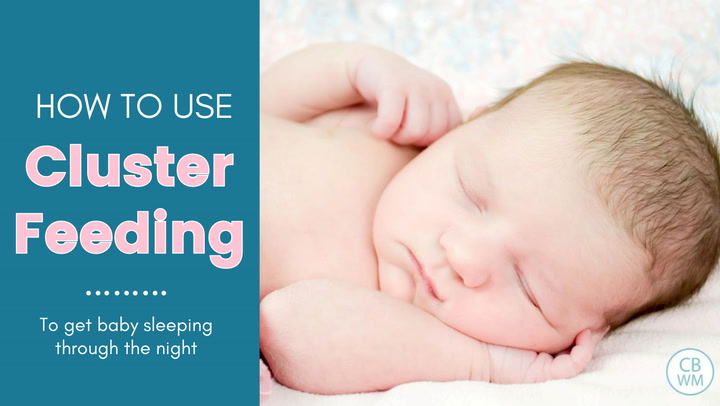 The younger the baby, the more often he needs food. Newborn children need to be fed several times at night, older children, from about six months, once. After a year, children can already sleep at night without waking up for feeding. nine0003
The younger the baby, the more often he needs food. Newborn children need to be fed several times at night, older children, from about six months, once. After a year, children can already sleep at night without waking up for feeding. nine0003
Why do newborns eat at night?
In the womb, the baby receives nourishment through the umbilical cord continuously, without separation between day and night. After birth, the volume of the baby's stomach is very small, so he cannot get enough nutrients and vitamins and minerals at one meal. Therefore, the baby needs to eat often, in small portions, so that there is no regurgitation and digestive problems.
Another argument in favor of frequent feedings is a very intensive metabolism in an infant. This is necessary to provide the body with the necessary building blocks and energy during a period of very rapid growth and development. In the first year of life, growth processes are maximum in speed, and in order for a baby to triple its weight by a year and grow by 50% of its original height, it needs to eat often and a lot.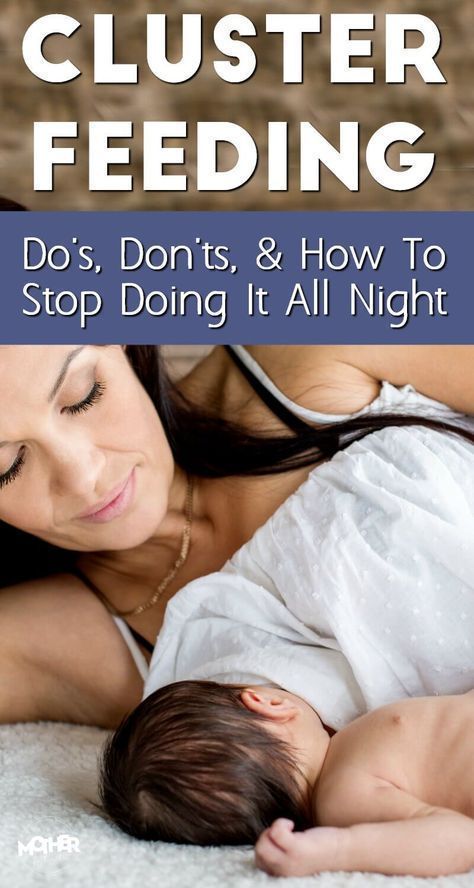 nine0003
nine0003
Proper nighttime feeding of babies
Even 20 years ago there was a recommendation to maintain a break at night (from midnight to six in the morning), not to feed the baby. This was explained by the fact that the stomach needs rest, and you need to “deceive” it with some water or give it a pacifier. But today it is already known for sure that the stomach is equally active both during the day and at night. In early childhood, circadian rhythms have not yet been formed and the digestive system works around the clock.
Today, doctors recommend feeding a newborn on demand - he himself determines when to eat and how much milk to suck out for feeding. In the first 2–3 months, a child can wake up up to 3–4 times a night (between 9 pm and 6 am) to attach to the breast, up to six months - up to three times, after six months - once, less often twice.
- When breastfeeding, it is recommended to feed the baby on demand, including at night, giving up the practice of "hungry" motion sickness, the use of pacifiers or water.
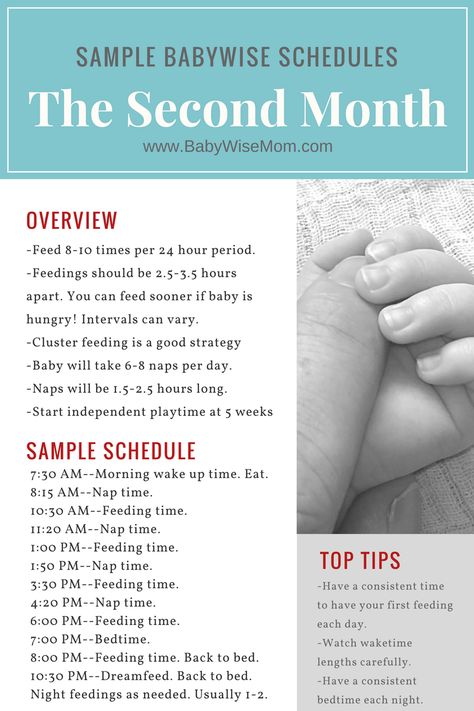 nine0032
nine0032 - For mixed-fed babies, breastfeeding should be preferred at night. This will also help stimulate lactation in order to increase the amount of milk secreted during the day.
- Formula-fed infants should be fed every 3 hours. Let's say a break of 4-5 hours if this is a child older than 3-4 months.
Until what age should I feed my baby at night?
Many parents think that as complementary foods are introduced, the child no longer needs night feedings, because he can be fed during the day. Yes, of course, the baby already receives more dense food - vegetable, cereal, meat complementary foods. But this does not mean at all that he will not want to eat at night. nine0003
In the daytime, children eat a variety of complementary foods, and at night they have a need to attach to the breast, to get enough of breast milk. After all, the number of attachments to the breast in the daytime gradually decreases, and babies can compensate for this by waking up at night to feed.
If a child is breast-fed, he may have 1 to 3 nightly feedings until the end of lactation (to fall asleep, actually at night, to calm down and fall asleep). If a child is on artificial nutrition, after a year, milk formulas are almost replaced by other products. Most often, children drink cow's milk or fermented milk products at night, special mixtures for children of the second year of life (“threes” or “fours”). nine0003
Most children under three wake up at least once during the night to eat. This is quite normal and does not require any radical intervention from the parents.
Should my baby be weaned from night feedings?
This issue is quite complicated and it is solved individually. Up to a year, if the child himself does not refuse night feedings, they should not be removed. After a year, this issue must be addressed individually, based on indicators of height and weight, the level of physical and neuropsychic development. If the baby was born prematurely or gained weight at the lower limits of the norm in the first year of life, it is worth leaving feeding in the second year so that the child receives more nutrients for growth and weight gain.




